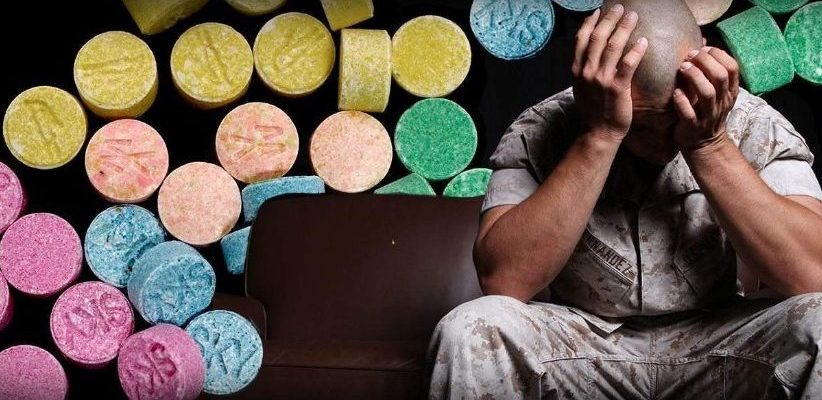
The New York Times has found a new study that shows MDMA bringing relief to those with PTSD. Coupled with talk therapy, the psychedelic drug supposedly passes the test towards medical approval. Researchers held a Phase 3 clinical trial consisting of 90 people who received MDMA during therapy. The participants included combat veterans, first responders, and victims of various traumatic events. These include sexual assault, mass shootings, domestic violence, and childhood trauma.
All participants had severe PTSD for more than 14 years with a history of alcohol and substance use disorder. What’s more, is 90% of participants considered suicide. Now, the trial data shows that 67 participants of the MDMA group experienced a significantly greater reduction in symptom severity. This means the participants no longer qualified under a PTSD diagnosis, compared to the 32% in the placebo group. MDMA didn’t produce serious adverse reactions, but some experienced temporary side effects like nausea and loss of appetite. It’s important to note that it’s not the drug, but the therapy enhanced by the drug that proves beneficial. MDMA taken without therapy is just a regular party.
Still, these findings seem promising as the FDA needs a second positive Phase 3 trial in order to approve MDMA-assisted therapy. Approval could be as early as 2023 with this. Mental health experts say this could pave the road for further studies on psychedelic-assisted therapy. Many difficult-to-treat mental health conditions have gone on without proper acknowledgment. We’ve already seen other studies utilizing psilocybin, LSD, and mescaline for treatment. If these continue to be studied, perhaps we may be able to find a happy medium that works.
“This is a wonderful, fruitful time for discovery, because people are suddenly willing to consider these substances as therapeutics again, which hasn’t happened in 50 years”.
Jennifer Mitchell, neuroscientist at the University of California, San Francisco
MDMA doesn’t blunt PTSD symptoms, rather it aids in processing painful memories, allowing people to heal. Engaging with trauma is difficult, but coupled with talk therapy could make headway in mental health treatment. Read about the full study here.
Source: The New York Times